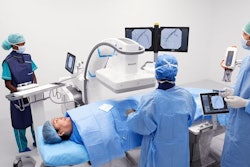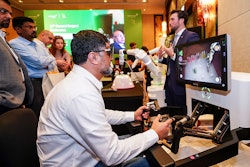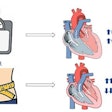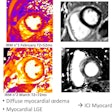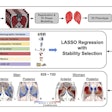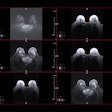A new €102.7 million investment from the Dutch government's National Growth Fund will support breakthrough radio frequency (RF) technology used in Philips MR scanners, the company has revealed. Philips has also announced trading figures.
The collaboration between the Dutch government and the Pathway towards Opportunities for Large scale Applications of Radically Integrated Systems (POLARIS) consortium of companies, including Philips, and universities connects three high-tech sectors together: radar, MRI, and telecommunication, according to the vendor. It said further development of RF technology can contribute to faster and more accurate MRI scans.
RF technology is used by Philips in MRI scanners to transmit and receive radio signals during an MR scan.
“We can learn a lot from each other about RF technology, drive innovation, and improve its application," said Philips General Manager of MR Ioannis Panagiotelis, PhD, in a statement. "For Philips, further development of RF technology can accelerate image acquisition and reconstruction and further improve the quality of images, potentially at a lower cost. This will allow radiologists to make faster and better diagnoses for patients.”
With its lead partners, Thales Netherlands, the Polaris consortium has signed an eight-year contract with the Dutch government.
“The focus on low-volume, high-value manufacturing is an important asset to the Dutch industrial base and ensures a robust and sustainable ecosystem of cooperation for years to come," added Polaris's program line manager Mark van Helvoort, on behalf of Philips. "It is inspiring to see how sectors in healthcare, defense, telecommunications, and semiconductors are joining forces in this very ambitious program.”
Other companies involved include NXP, Altum RF, Bronkhorst, and Neways. Universities and research institutions involved include the University of Twente, TU Delft and TU Eindhoven, TNO, and CITC, according to Philips (see https://www.philips.com/a-w/about/news/archive/standard/news/articles/2025/philips-drives-further-development-of-radio-frequency-technology-as-part-of-dutch-national-growth-fund-project-polaris.html).
Trading figures revealed
Circular revenues -- that is, those generated by a business model that aims to reduce waste and pollution -- comprised nearly one-quarter of Philips' sales in 2024, according to the company's new annual report.
Circularity practices are increasingly being embedded into the company's aims, Philips said, as well as responsible take-back on all professional medical equipment in 2025 and zero waste-to-landfill. Philips' EcoHeroes models are targeted to account for 25% of hardware revenues and, in its report, the company said it planned to further expand EcoDesign activities moving forward.
Elsewhere, for the year (ending December 31, 2024), Philips highlighted:
- Total sales of €18 billion ($18.8 million) in 2024, down 1% from €18.2 billion ($19 million) in 2023.
- Sales of goods at €12.2 billion ($12.8 billion) in 2024 were more than double that of services at €5 billion ($5.2 billion). Sales of services rose 2% over 2023.
- Gross margin of €7.8 billion ($8.2 billion) was up 5.4% from €7.4 billion ($7.7 billion) in 2023.
- Positive income from operations was €529 million ($553.2 million) in contrast to a loss of €115 million ($120.3 million) in 2023. Net income losses, however, grew to €698 million ($730 million), compared with €463 million ($484.2 million) in 2023.
- Sales from the company's diagnosis and treatment segment fell €24 million ($25.1 million) in 2024 to €8.8 billion ($9.2 billion) for the time period. North America comprised €7.7 billion ($8.1 billion) in sales in the segment, compared with €4 billion ($4.2 billion) in Western Europe. Precision diagnosis comprised 59% (diagnostic imaging 40%, ultrasound 19%) of total sales, with image-guided therapy at 41%.
Find the full report here.





